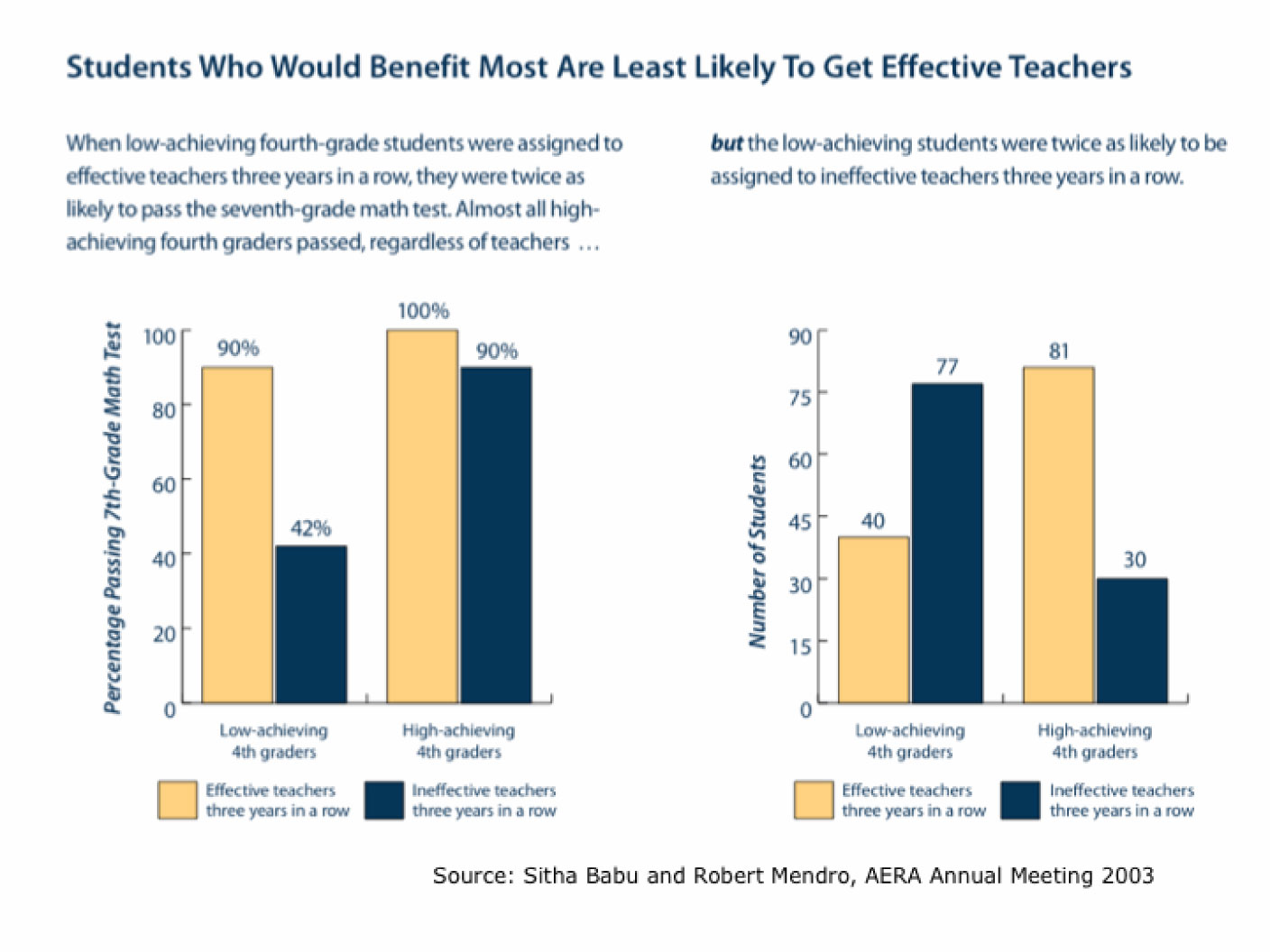How important are teachers in improving student performance?
How important are teachers in improving student performance?
Why is this question important? This question is critical for the following reasons: (1) Student achievement is not keeping pace with stakeholder expectations; (2) if teachers are the critical factor in predicting student success, it is important to identify those factors associated with good teachers and systematically train new teachers in these skills; and (3) improving teacher effectiveness would be a significantly less expensive intervention than many of the other systems interventions implemented over the past 20 years.
See further discussion below.

Source(s): Teacher Accountability: HLM-Based Teacher Effectiveness Indices in the Investigation of Teacher Effects in a State Assessment Program
Result(s): When low-achieving fourth-grade students were assigned to effective teachers three years in a row, they were twice as likely to pass the seventh-grade math test. Almost all high-achieving fourth graders passed, regardless of teachers. It is significant that the low-achieving students were twice as likely to be assigned to ineffective teachers three years in a row.
Implication(s): Low-achieving students are able to make significant and long-lasting gains when taught over time by competent, highly effective teachers. Unfortunately, low-achieving students are the students least likely to be provided effective teachers.
Author(s): Sitha Babu and Robert Mendro, 2003
Publisher(s): American Education Research Association (AERA), 2004
Study Description: A longitudinal study of the effects teachers have on student performance. Students in Dallas were followed for three years from 1998 through 2000. This study was an attempt to replicate the results of Sanders and Rivers (1996) on the longitudinal effects of teachers on student achievement.
Definition(s):
- Effective teacher: A teacher who demonstrates contributions to student achievement.
- High- or low-achieving student: Determined by the amount of progress a student achieved, independent of socio-economic factors, over the period of the study. (Each student acted as his or her own control.)
- Residual effects of teachers: The influence a teacher has on the student's academic growth when the student advances to future grades.
Related Research:
- Teachers account for 3% of the variance in student achievement: Policy Implications of Long-Term Teacher Effects on Student Achievement, Bembry, Jordon, Gomez, Anderson, and Mendro, 1998
- U.S. government study suggested teacher effectiveness is responsible for between 4 and 18% of student test scores: AERA 2004 Research Points
- Teacher average effectiveness results in two additional months achievement per student: AERA 2004 Research Points
- Differences in student achievement of 50 percentile were observed as a result of teacher after three consecutive years: Cumulative and Residual Effects of Teachers on Future Academic Performance, Sanders and Rivers, 1996
Citation: Babu, S. & Mendro, R. (2003) Teacher Accountability: HLM-Based Teacher Effectiveness Indices in the Investigation of Teacher Effects on Student Achievement in a State Assessment Program, AERA Annual Meeting
